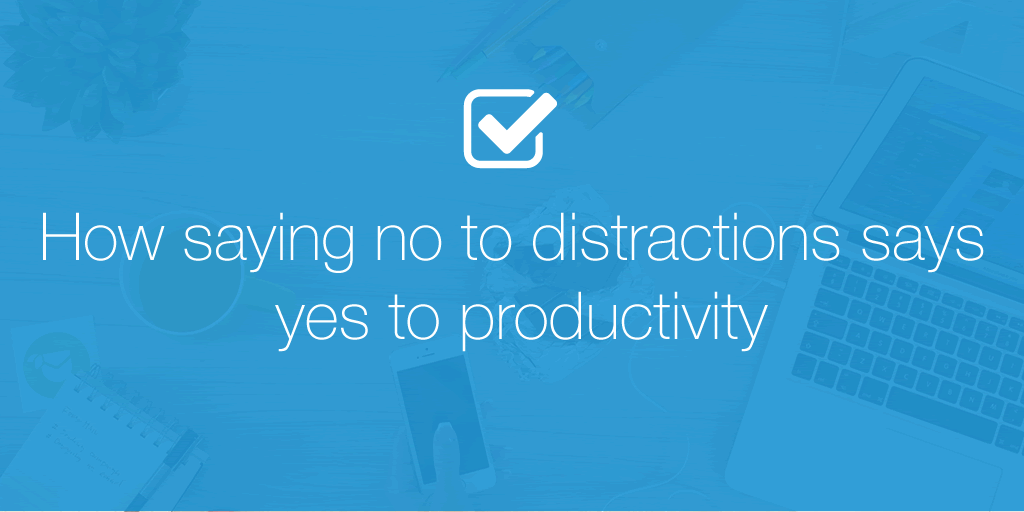

5 tips to stop multitasking (and become more productive)

As small business owners, entrepreneurs, and salespeople, we all wear a lot of hats and have to juggle multiple essential tasks.
In business you are often tasked with strategic planning, sales and marketing, customer service, business and product development, accounting, hiring, web development, and IT, to name just a few, and you probably don’t have much help to do them.
Why multitasking kills productivity
The data revealed that people who are regularly exposed to several streams of information, for example, email, phone, LinkedIn, etc., cannot pay attention, recall information, or switch from one job to another as well as those who complete one task at a time.
“What you call multitasking is really task-switching. Moving back and forth between several tasks actually wastes productivity”, he says, “because your attention is expended on the act of switching gears—plus, you never get fully get in to a flow for any of the activities you are doing”.
So if multitasking is the wrong approach, how can salespeople be productive and effective?
Here are some tips.
5 tips to stop multitasking
Breaking the bad habit of multitasking is not easy.
This is even more difficult in a culture that glories long to-do lists and equates productivity to the number of crossed-off tasks. While it may feel like you’re accomplishing more, studies show that multitaskers are much less productive.
Getting smart at productivity means maximizing your time and that of your team. Which of your daily tasks actually lead to profitable conversions – aimlessly scanning your social profiles, striving to achieve inbox zero (pfft), or making that one sales call you’ve been putting off?
Here are 5 simple tips on how to stop multitasking and become more productive.
1. Eliminate known distractions
Since multitasking is so hard, a good first step is to get rid of distractions. One of the biggest of those is checking email. Of course, you need to be in contact with team members and customers, but do you really need to be in constant contact throughout the day?
You don’t.
Dell’s Stephanie Losee says:
“Today’s relentless email flood could steer you away from high-value work and even out of work entirely if you don’t learn defensive strategies”.
In other words, you won’t be able to multitask. A better approach is to batch-check email a couple of times a day and use a Getting Things Done (GTD) approach to process your email.
But you know what else you need to manage if you want to be productive?
Chats with co-workers were listed as the most disruptive element by 45% of people surveyed. You can’t multitask if you’re chatting.
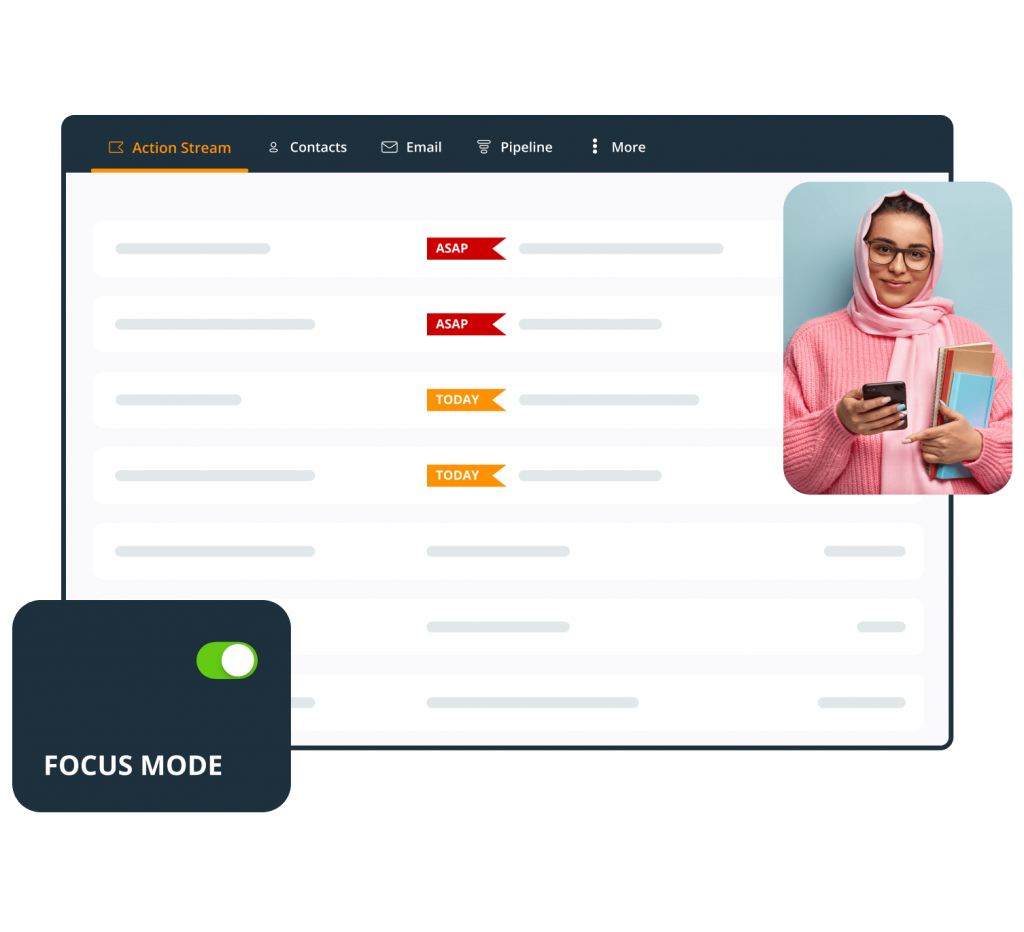
2. Work on related tasks
According to Entrepreneur, even when we look like we’re multitasking we really aren’t.
What we actually do is timeshare.
What we often call multitasking is the art of focusing on tasks sequentially, seamlessly moving from one to the other.
It seems the secret is to work on related tasks together. That stops your brain from having to pause when you move to something new.
Think about it – if you’re in the middle of creating a sales presentation, doesn’t it take a while to get your creative mojo back after stopping to take a phone call?
In contrast, if you are reading related information and making notes, then you are more likely to be efficient. It’s the same principle people use when cooking a meal, where several related tasks are on the go at the same time.
3. List your priorities
One of the ways to avoid multitasking and getting overwhelmed is to make a list, but not just any list.
Your list needs to help you focus on what comes next or your key priorities.
Make sure your list focuses on the three or four things you most need to accomplish every day and do them. But you can also have another short list of things that you can do while you’re waiting for another job to complete.
For example, if you’re printing a long report, you can make an important phone call, before going back to the report for a final check.
For best results, track all your tasks within the same system. The more items you can manage in one place, the more efficient you will be.
Another option for sequential multitasking is to chunk your time. You may want to break tasks into 25 or 50-minute blocks, with a little break in between. That break allows you to refresh your brain before moving to the next item or to switch gears for a brief time to accomplish another necessary task (say, scheduling social media responses).
4. Create a routine
One way you can stop multitasking, says the American Management Association, is to introduce some routine in your business life.
If you have a regular task on your to-do list, do it at the same time in the same way every day to create a habit. Once something becomes routine, it’s easier to do it efficiently, even if you’re not totally focused on it.
Need some inspiration? Check out the morning routines of successful people on Fast Company. And see how other entrepreneurs create routines to get more done.
5. Strategize first, execute later
It’s a catch-22, you dive headfirst into a task under the guise of being productive, only to hit a wall an hour in, inevitably having to stop and reevaluate your whole approach.
Smart people strategize first and execute later. Having a plan of action for what you want to accomplish for the day is the best way to get yourself motivated.
“Sometimes the biggest gain in productive energy will come from cleaning the cobwebs, dealing with old business, and clearing the desks—cutting loose debris that’s impeding forward motion.”
Conclusion
The five tips in this article will help you to stop unproductive multitasking.
Don’t forget that there’s one more trick up your sleeve for getting multiple tasks done without reverting to the habit of multitasking: outsourcing the tasks that others can carry out more effectively.
By eliminating unnecessary multitasking, you can begin embracing a more productive and profitable workflow.

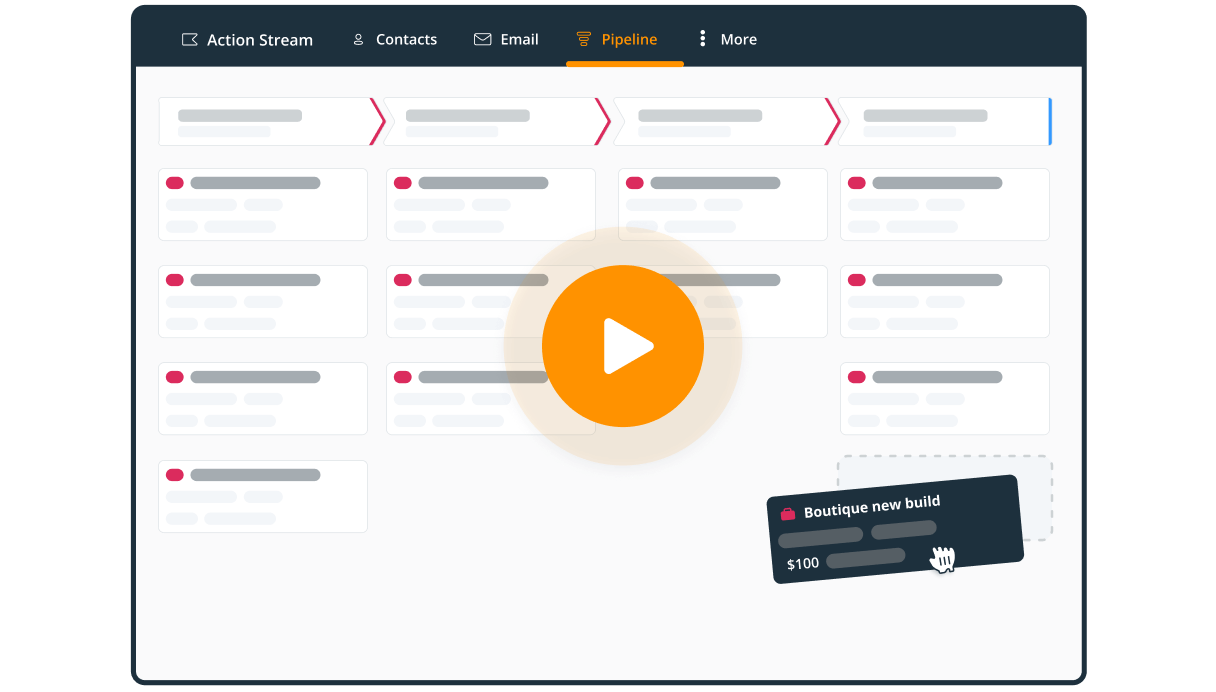


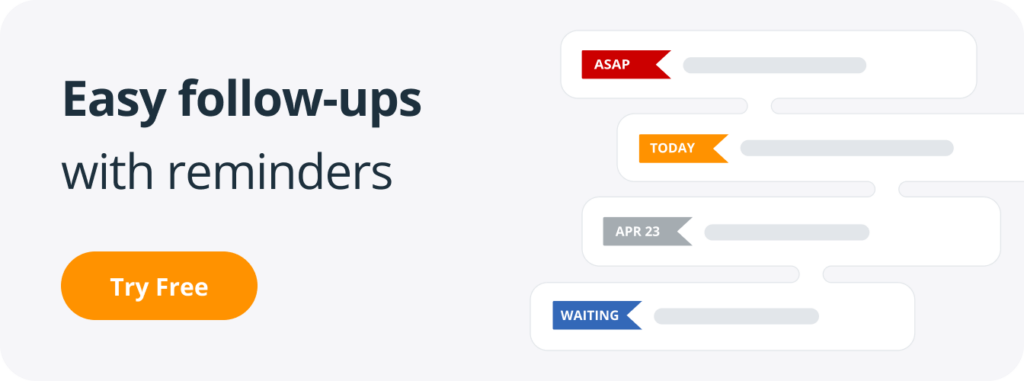






I’m sorry, this makes no sense.
Thanks for your feedback Barry.
Hey, Sharon. Thanks for sharing these tips. Some of us tend to miss the point of how insightful your article is. Working in sales, I understand how these minor habits determine a sales person’s efficiency and ability to work productively.
For one to become successful in sales, it’s important to know that it’s not just about selling. Simple habits, routines, and fixed behavior also play a huge role in predicting your future in the business. In fact, these tips can help build strong foundations of our work ethic and business strategy.
Thanks for your feedback Brooke, it’s really great to hear it 😀
Good blog post…